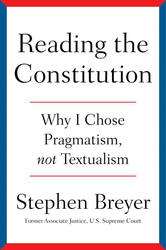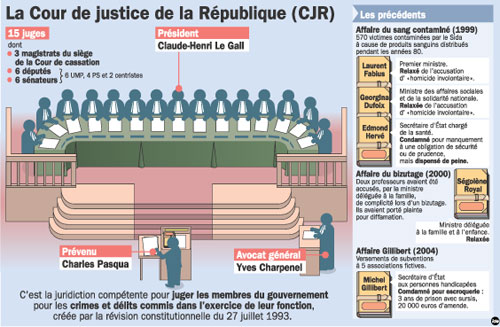May 28, 2025
Publications

🌐follow Marie-Anne Frison-Roche on LinkedIn
🌐subscribe to the Newsletter MAFR Regulation, Compliance, Law
🌐subscribe to the Video Newsletter MAFR Surplomb
____
► Full Reference: M.A. Frison-Roche, "100 fois remettre la Compliance sur le métier de la Stratégie" (100 times put Compliance back on the Strategy agenda), in Lettre d'information Compliance. Groupe SNCF, 100ième issue, 28 may 2025.
____
📝read the article (in French)
____
► English presentation of this article: This anniversary article sets out what Compliance is and should be in a large group. It expresses it in 4 points:
1. Actively master regulations by understanding their spirit
2. Improving risk detection without taking away the entrepreneurial spirit
3. Promoting convergence and managing conflict
4. Strengthen the company's identity by focusing on its strategic ambitions
________
March 14, 2025
Thesaurus : Doctrine
► Référence complète : L. d'Avout, "Entre Luxembourg et Strasbourg, la fabrication médiatique du droit civil européen", Conférence à l'Université Toulouse-Capitole, 14 mars 2025.
► Présentation de la conférence par l'Université : cliquer ICI
____
🎥 Voir et Ecouter la conférence.
_________
April 30, 2024
Interviews

🌐follow Marie-Anne Frison-Roche on LinkedIn
🌐subscribe to the Newsletter MAFR Regulation, Compliance, Law
____
► Full Reference: M.-A. Frison-Roche, "GPA : "Il faut cesser de passer la femme par pertes et profits"" ("Surrogacy: "We have to stop writing off women""), interview with Olivia Dufour, Actu-Juridique, April 30, 2024
____
💬read the interview (in French)
____
► Presentation of the interview by the journal: "Le 23 avril 2024, les députés européens ont adopté une loi élargissant le champ d’application des mesures actuelles pour combattre et prévenir la traite des êtres humains et mieux soutenir ses victimes, par 563 voix pour, 7 contre et 17 abstentions. La maternité de substitution, ou GPA, entre désormais dans le champ de la traite des êtres humains. Mais depuis quelques jours, la polémique fait rage. Le nouveau texte réprime-t-il uniquement la GPA contrainte organisée par une association criminelle, ou toute forme de GPA ? Nous avons demandé au professeur Marie-Anne Frison-Roche, auteur d’un ouvrage intitulé « GPA : dire Oui ou dire Non » publié chez Dalloz en 2018, de nous éclairer sur les enjeux attachés à cette question et sur la position de l’Europe.".
(Free translation: "On April 23, 2024, Members of the European Parliament adopted a law extending the scope of existing measures to combat and prevent human trafficking and provide better support for its victims, by 563 votes to 7 with 17 abstentions. Surrogacy (gestation pour autrui - GPA in French), now falls within the scope of human trafficking. But in recent days, controversy has been raging. Does the new text punish only forced surrogate motherhood organised by a criminal association, or all forms of surrogacy? We asked Professor Marie-Anne Frison-Roche, author of a book entitled "GPA: dire Oui ou dire Non" ("Surrogacy: say Yes or say No") published by Dalloz in 2018, to shed some light on the issues surrounding this question and on Europe's position".)
____
🕴️M.-A. Frison-Roche, 📕GPA : dire Oui ou dire Non (Surrogacy: say Yes or say No), 2018
____
► Questions asked, answers given:
Actu Juridique. Question : La GPA est une pratique ancienne même si elle est longtemps restée marginale, qu’est-ce qui a changé et nécessite aujourd’hui l’attention des pouvoirs publics et du législateur ?
Surrogacy is a long-standing practice, even if it was marginal for a long time. What has changed that now requires the attention of public authorities and legislators?
Marie-Anne Frison-Roche. Answer. : Two things have changed this practice. The first is the possibility of introducing a man's gametes and a woman's oocyte into a woman's body, thus reducing her to being a "carrier" and providing this service, which is very much in demand. The second is the transformation of the desire for a child, an eternal desire shared by many, into a "right to a child". This right to a child would need to be put into practice by any means, for the benefit of any holder who is unable or unwilling to suffer the inconvenience of pregnancy. This is how the practice developed. The legislator intervened, following case law, by declaring, as the Cour de cassation (French Court of cassation) had done, that this practice was contrary to the dignity of the human being, punishable under both the Code civil (French Civil Code) and the Code pénal (French Criminal Code).
A.J. Q. : Autrement dit, les innovations techniques couplées à l’émergence d’un sentiment de droit à l’enfant ont fait exploser la demande de maternité de substitution…
In other words, technical innovations coupled with the emergence of a sense of entitlement to a right to a child have led to an explosion in demand for surrogacy...
MaFR. A. : Yes, but this demand has to be matched by an offer. There are few fertile women prepared to bear children for others. The desire to have children is not matched by a desire to bear them for others without compensation. And the few women who are willing to do so are in countries far removed from the people who want them. The practice has only developed because of the very prosperous agencies on which everything depends. Without this intermediation, towards Ukraine for example, the practice could not have spread.
A.J. Q. : L’Europe avait-elle déjà pris position sur la GPA et si oui, par quels textes et dans quel sens ?
Has Europe already taken a position on surrogacy and, if so, in what texts and in what direction?
MaFR. A. : In Europe, it was the case law of the ECHR which in 2014 (Mennesson judgments) broke with French jurisprudence to impose that the filiation of a child born as a result of a surrogacy carried out abroad in a country where surrogacy is lawful can be established with regard to the father whose gametes had been used. All that remained was for the child to be adopted by the father's spouse. This did not change domestic legislation, but the way civil status works means that the prohibition can be rendered ineffective. But this meant saying Yes and No at the same time... The challenge was therefore to amend the texts, either to exclude surrogacy more strongly, or to admit it more openly.
A.J. Q. : Dans ce contexte, quelle nouveauté apporte le texte adopté par le Parlement européen le 23 avril dernier ?
Against this backdrop, what is new about the text adopted by the European Parliament on 23 April?
MaFR. A. : It depends on how you interpret it. When the text of the directive was being discussed, no one disputed that its adoption would result in the effective prohibition of surrogacy throughout the European Union and the strengthening of the basis of this prohibition in that surrogacy constitutes trafficking in human beings, the woman who carries the child and who legally remains the mother since she gives birth to the child, and that child. But once voted, the text gives rise to another interpretation, supported by some. It is argued that trafficking in human beings is not the "legal category" into which surrogacy falls, but the "condition" under which surrogacy is punishable; So, if surrogacy is practised without "trade" (trafficking is a trade), if there is no money involved, if there is only altruism and concern for the other person, then not only is surrogacy not punished, but what is more, this so-called "altruistic" surrogacy becomes legitimate by the very fact of this directive! The scope is therefore quite simply the opposite... This could give rise to litigation.
A.J. Q. : Dans l’ouvrage que vous avez consacré à la GPA en 2018 chez Lefebvre-Dalloz préfacé par Éliette Abécassis, vous montrez qu’on peut dire Oui ou Non à la GPA, mais qu’il faut répondre et surtout vous mettez en lumière les implications de ces choix. Pourquoi faut-il forcément répondre à cette question ?
In your book on GPA published by Lefebvre-Dalloz in 2018, with a preface by Éliette Abécassis, you show that we can say Yes or No to surrogacy, but that we must answer, and above all you highlight the implications of these choices. Why do we have to answer this question?
MaFR. A. : The question of whether or not to allow surrogacy must be answered (say Yes or say No), because it is a question of society. Not to answer it, to say neither yes nor no, to say yes and no at the same time, is not to choose the society in which we want to live.
A.J. Q. : Imaginons que l’on choisisse le Oui. Qu’implique-t-il sur les valeurs de la société et l’état du droit ?
What does this mean for the values of society and the Rule of Law?
MaFR. A. : If we accept that surrogacy is legal, then it is the will of the people involved that gives birth to the child. The agreement between the person or persons planning to have a child and the woman who agrees to carry the child, with the agent acting as intermediary. It is the society of the contract, because the State is nothing, it is only the scribe who copies the stipulations onto the civil status register. Parentage ceases to be the institution guarded by the State through which the individual is anchored in the social group. Parentage becomes a private matter. This contract-based society is in fact a market society.
A.J. Q. : Et si l’on dit Non à la GPA, on le fait sur quel fondement et pourquoi ?
And if we say No to GPA, on what grounds and why?
MaFR. A. : If we maintain the prohibition of surrogacy and seek to make it effective, in particular by taking action against agencies, we are referring to a society where the State, through public order, watches over human beings and where the law controls power and protects women.
________
March 26, 2024
Thesaurus : Doctrine

► Full reference : S.Breyer, Reading the Constitution: Why I Chose Pragmatism, Not Textualism, Simon & Schuster, 2024, 361 p.
____
📗read the 4th cover page
____
📗read the book's table of contents
____
► Book summary (by the publisher) : "A provocative, brilliant analysis by recently retired Supreme Court Justice Stephen Breyer that deconstructs the textualist philosophy of the current Supreme Court’s supermajority and makes the case for a better way to interpret the Constitution.
“You will not read a more important legal work this election year.” —Bob Woodward, Washington Post reporter and author of fifteen New York Times bestselling books
“A dissent for the ages.” —The Washington Post
“Breyer’s candor about the state of the court is refreshing and much needed.” —The Boston Globe
The relatively new judicial philosophy of textualism dominates the Supreme Court. Textualists claim that the right way to interpret the Constitution and statutes is to read the text carefully and examine the language as it was understood at the time the documents were written.
This, however, is not Justice Breyer’s philosophy nor has it been the traditional way to interpret the Constitution since the time of Chief Justice John Marshall. Justice Breyer recalls Marshall’s exhortation that the Constitution must be a workable set of principles to be interpreted by subsequent generations.
Most important in interpreting law, says Breyer, is to understand the purposes of statutes as well as the consequences of deciding a case one way or another. He illustrates these principles by examining some of the most important cases in the nation’s history, among them the Dobbs and Bruen decisions from 2022 that he argues were wrongly decided and have led to harmful results."
________

Aug. 16, 2021
Publications

 ► Full Reference: Frison-Roche, M.-A, Reinforce the judge and the lawyer to impose Compliance Law as a characteristic of the Rule of Law, Working Paper, August 2021.
► Full Reference: Frison-Roche, M.-A, Reinforce the judge and the lawyer to impose Compliance Law as a characteristic of the Rule of Law, Working Paper, August 2021.
____
🎤 this working document has been made to prepare some elements of the opening intervention in the symposium Quels juges pour la Compliance) ? (Which judges for Compliance?), co-organized by the Journal of Regulation & Compliance and the Institut Droit Dauphine, held at the Paris Dauphine University on September 23, 2021, constituting the first part of the intervention.
____
📝it has been also the basis for an article:
📕 published in its French version in the book La juridictionnalisation de la Compliance, in the collection📚Régulations & Compliance
📘published in its English version in the book Compliance Jurisdictionalisation, in the collection 📚Compliance & Regulation
____
► Summary of the Working Paper: One can understand that the compliance mechanisms are presented with hostility because they seem designed to keep the judge away, whereas there is no Rule of Law without a judge. Solid arguments present compliance techniques as converging towards the uselessness of the judge (I). Certainly, we come across magistrates, and of all kinds, and powerful ones, but that would be a sign of imperfection: its ex-ante logic has been deployed in all its effectiveness, the judge would no longer be required... And the lawyer would disappear so with him...
This perspective of a world without a judge, without a lawyer and ultimately without Law, where algorithms could organize through multiple processes in Ex Ante the obedience of everyone, the "conformity" of all our behaviors with all the regulatory mass that is applicable to us, supposes that this new branch of Law would be defined as the concentration of processes which gives full effectiveness to all the rules, regardless of their content. But supposing that this engineer's dream is even achievable, it is not possible in a democratic and free world to do without judges and lawyers.
Therefore, it is imperative to recognize their contributions to Compliance Law, related and invaluable contributions (II).
First of all, because a pure Ex Ante never existed and even in the time of the Chinese legists📎
Even more so, Compliance Law only takes its sense from its Monumental Goals📎
____
🔓read the Working Paper developments below⤵️
L’empire chinois n’a semble-t-il jamais apprécié les juges, ne leur faisant place que sous la forme de serviteurs purs de l’Etat, qu’ils soient des enquêteurs, des punisseurs et de gardiens de l’ordre public. Sur cet aspect du Droit chinois, v. … ; sur cette période particulièrement sanglante des légistes, où le principe de « certitude » de la législation a été portée à ses nues, v. …
🕴️Frison-Roche, M.-A. (ed.), 📘Compliance Monumental Goals, 2022.
The topic of this study is general. For a more analytical perspective, s.. 🕴️Frison-Roche, M.-A., « The function of the Judge in Compliance Law », in 🕴️Frison-Roche, M.A. (ed.), 📘Compliance Jurisdictionalisation, 2023.
🕴️Frison-Roche, M.-A. (ed.), 📘Compliance Tools, 2021.
Jan. 23, 2020
Thesaurus : Doctrine

► Référence complète : W. Marx, "Vivre dans la bibliothèque du monde", Leçon inaugurale pour la Chaire de Littérature comparé au Collège de France, 23 janvier 2020.
____
📻Ecouter un entretien à propos de ce cours, centré sur la notion de "bibliothèque mentale" :
____
► Présentation de la conférence (faite par le Collège de France) : L’étude de la littérature est affaire de science, mais aussi, et sans doute d’abord, de plaisir. Or le plaisir peut faire obstacle à une approche scientifique de la littérature. Heureusement, une étude comparée de la littérature permet de dépayser notre rapport à la littérature en remettant en question nos habitudes de lecture ainsi que les canons sur lesquels se fonde notre conception de l’objet littéraire. Elle permet de renouveler notre compréhension des œuvres, dans la mesure où toute lecture est, de manière inconsciente, une lecture comparée : une œuvre fait sens sur un fond d’autres œuvres dont elle se détache, tant et si bien que changer l’arrière-plan revient également à modifier la perception du premier plan. Un tel décentrement n’est cependant pas facile à obtenir : il exige une transformation quasiment existentielle du lecteur lui-même, appelé à renoncer à l’idée beaucoup trop nivelante de littérature mondiale, pur produit de l’émergence du concept moderne de littérature à la fin du XVIIIe siècle, afin de parvenir à entrer dans un autre univers, celui de la bibliothèque du monde, infiniment plus respectueuse de la singularité des objets qui la composent, et donc plus propre à provoquer la défamiliarisation indispensable. Une approche comparatiste doit se frayer un chemin étroit entre, d’une part, cette nécessaire sensibilité à l’altérité et, d’autre part, les forces aujourd’hui toujours plus puissantes qui visent à rendre les cultures hermétiques les unes aux autres en insistant sur une prétendue incommunicabilité des objets culturels.
.....
À quelle échelle en effet envisager un problème quelconque de l’histoire littéraire ? L’échelle européenne vaut pour un grand nombre de sujets intéressant la littérature française. Mais de quelle Europe s’agira-t-il ? Une définition large s’impose, intégrant les littératures des langues européennes, de quelque continent qu’elles viennent, et notamment des Amériques. Mais pourquoi s’arrêter là ? Dès l’Antiquité classique, les échanges méditerranéens et eurasiens mirent en contact les cultures européennes avec l’Afrique et l’Asie, et ils ne cessèrent de se complexifier, en particulier avec les mouvements de colonisation, puis de décolonisation. La perméabilité des cultures et la circulation des œuvres forment une donnée fondamentale de leur histoire.
La notion même de littérature fait cependant problème, avec tout ce qu’elle implique de présupposés et d’usages historiquement datés et géographiquement localisés : en gros, l’Europe des deux derniers siècles. C’est pourquoi l’intitulé de cette chaire a été mis au pluriel, et il y est proposé l’étude non pas de la, mais des littératures, dont il convient de postuler d’abord la diversité, non seulement linguistique, mais culturelle et anthropologique. Il s’agira d’explorer une problématique, celle de la pluralité des objets dits littéraires, de leur nature, des corpus qu’ils forment, de leurs fonctions et de leur variabilité historique et culturelle.
En travaillant à une histoire et à une géographie différentielles du concept de littérature, on visera à provoquer chez le lecteur contemporain un sentiment d’étrangeté par rapport à lui-même, à déstabiliser ses systèmes de valeurs et sa vision du monde : non pas le simple dépaysement pour le dépaysement, mais un dépaysement visant à la défamiliarisation.
Une telle réflexion sur les cultures dans lesquelles s’inscrivent les textes finit forcément par déboucher sur une critique générale de la culture, selon une mission de nature humaniste et démocratique. Dans l’Europe à laquelle nous participons désormais en tant que citoyens, dans le monde globalisé qui est le nôtre, où les progrès technologiques démultiplient les échanges et circulations des personnes, des discours, des représentations et des biens tout en aggravant le risque de malentendus culturels et religieux, cette mission subversive, critique et créatrice ne peut pas ne pas rester la note fondamentale, sinon la justification, de tout enseignement et de toute recherche en littératures comparées au Collège de France.
________
Dec. 5, 2019
MAFR TV : MAFR TV - case

Watch the video explaining the content, meaning and scope of the decision made by the Conseil d'Etat (French Council of State) on November 15, 2019, La Banque Postale v. Autorité de contrôle prudentiel et de résolution (ACPR).
The Autorité de contrôle prudentiel et de résolution - ACPR (French Authority of prudential control and resolution) pronounced a very high sanction, representing 7% of La Banque Postale's net annual result. The breach is constituted by the fact of not having prevented the use of the banking technique of the "money order" which was used to escape the freezing of the assets.
The Conseil d'Etat recalls that by nature if the assets are frozen, it is not possible that anyone is able to dispose of these assets. However, by the use of "money orders", persons targeted by asset freezing decisions, tools used in connection with the fight against money laundering and the fight against terrorism, had been able to circulate money to from accounts managed by La Banque Postale, of which they were not customers.
This case was not foreseen at the time when the Bank Postale was sanctioned by the ACPR for not having prevented such a use, the texts forcing it under its obligations of "conformity" to prevent this behavior of violation background gels on the part of his customers, but only that.
This case of a use of a means by a person who is not a customer of the bank was not foreseen at the time when the alleged facts took place and the Bank claims not to be able to be punished since in the repressive matter it is necessary to respect the principle of non-retroactivity of the texts, - in this case texts later supplemented to aim at such an assumption -, the non-retroactivity being a major principle itself related to the principle of the legality of the offenses and the penalties.
We are therefore in the hypothesis of a silence of the texts.
What to decide? Can the Bank be condemned and so heavily or not by the ACPR?
The Bank does not think so.
It acted against this sanction decision firstly because those who used these money orders were not its clients. It has strong reasons to avail itself of this fact, since subsequently the texts needed to be modified to aim not only the use of this technique of money order by those who have a count in the bank and also by those who act with cash through the bank without a count, that is to say without an account holder to look at. Because we are in criminal matters, the restrictive interpretation and non-retroactivity of the text should lead to follow the reasoning of the Bank. But the Conseil d'Etat does not because it considers that implicitly but necessarily even with this subsequent modification of the text, it had aimed that use before.
By this way, the Conseil d'Etatuncil develops a very broad concept of the obligations of banks in their role in the fight against money laundering, and therefore a very repressive point of view, which permeates their "obligation of Compliance". Thus, when the bank also argues that it can not be sanctioned since for it this activity of money order is deficit and that it did not cause harm to its customers even by assuming badly its obligations, theConseil d'Etat stresses that this is not a pertinent perspective since the Compliance obligations falls within the "overriding general interest of protection of public order and public security, to which the freezing of assets legislation responds".
_____
Read the judgment of the Conseil d'Etat ( in French).
March 8, 2018
Law by Illustrations

Difficile d'apprendre le Droit. Encore plus le Droit américain.
Si on le prenait pour ce qu'il est : un "art pratique".
Il n'y a rien de révolutionnaire à le définir ainsi. Depuis Rome, le Droit est défini comme un art pratique et si les Romains ont bâtis les Lois comme ils ont construits les aqueducs, ils ont aussi conçu le prêteur qui, sur le Forum, réglé les litiges par des dispositions générales une fois admis l'existence d'une action, ce qui est la base des systèmes de Common Law. Les Grecs quant à eux ont associé le Droit et l'art rhétorique, c'est-à-dire la puissance argumentative de convaincre le tiers qui décide.
Ainsi, une société qui met en son centre les juges qui décident et les avocats qui convainquent au terme de séances publiques où l'art de parler est premier sont des sociétés juridiques et plus encore des sociétés juridictionnelles : même lorsqu'il s'agit de processus législatifs, c'est encore la figure du procès qui s'y glisse.
Il suffit de suivre Miss Sloane pour le mesurer.
Lire la suite plus bas.

Sept. 26, 2016
Publications

Ce working paper a servi de base à un article publié en novembre 2016 dans la Revue Concurrence.
L'Autorité de la Concurrence semble présenter la Loi dite "Macron" comme une loi dont le principe serait la concurrence. Il est vrai que la profession notariale adopte souvent cette présentation-là.
A lire le Communiqué de l'Autorité de la Concurrence du 20 septembre 2016, il présente comme un texte de "liberté d'installation", principe certes de concurrence, un texte qui établit une carte d'implantation des offices, ce qui est davantage une technique de régulation, au sein de laquelle la concurrence est utilisée comme un adjacent et non comme un principe. Il en est de même en ce qui concerne ce que payent les clients, ce qui demeure n'être pas un prix mais une tarification, certes renouvelée dans sa conception, mais une tarification.
Ainsi, le principe de la Loi dite "Macron" est la Régulation et non le principe de concurrence. Il sera très important de s'en souvenir lorsque viendra le temps pour les juges de l'interpréter, puisque le raisonnement téléologique s'impose.
D'ailleurs, ne nous trompons pas de bataille à propos de cette loi nouvelle. Il ne s'agit pas de laisser sur le champs soit le service public, soit la concurrence, puisque le Droit de la régulation fait définitivement dans la loi "Macron" l'équilibre entre les deux.
La profession notariale doit plutôt se concentrer sur la représentation que le Législateur a eu d'elle : des "tiers de confiance". Non pas une confiance héritée, léguée de père en fils. Une confiance méritée, que la profession doit donner à voir, afin que chacun de ses membres peuvent en faire bénéficier les tiers, que sont à la fois les parties et l'Etat.
Sept. 8, 2014
Publications
 Le 26 août 2014, la commission d'instruction de la Cour de justice de la République a mis en examen Madame Christine Lagarde. Le texte utilisé pour y procéder est l'article 432-16 du Code pénal qui permet de reprocher, au titre de faute pénale, la "négligence" d'un dépositaire de l'autorité publique qui a permis à un tiers de détourner des fonds publics.
Le 26 août 2014, la commission d'instruction de la Cour de justice de la République a mis en examen Madame Christine Lagarde. Le texte utilisé pour y procéder est l'article 432-16 du Code pénal qui permet de reprocher, au titre de faute pénale, la "négligence" d'un dépositaire de l'autorité publique qui a permis à un tiers de détourner des fonds publics.
Le comportement de Madame Christine Lagarde est celui qu'elle a eu lorsqu'elle était alors Ministre des Finances et de l'Économie, en décidant de recourir à l'arbitrage pour trouver une issue aux multiples contentieux opposant indirectement l'État et le groupe Bernard Tapie, puis en décidant de ne pas former un appel-nullité contre la sentence arbitrale de 2008.
Cette mise en examen est une atteinte à la séparation des pouvoirs, qui est un principe constitutionnel majeur, visé par l'article 16 de la Déclaration des droits de l'homme et du citoyen, qui rappelle que sans ce principe "il n'y a point de Constitution".
Il s'agit d'une mise sous tutelle du Politique par les magistrats. En effet , un ministre, parce qu’il est ministre et non pas administrateur, doit pouvoir décider. Doit pouvoir ne pas suivre l’opinion de son administration.
Ne pas l'admettre, c'est de la part des magistrats non seulement ne pas suivre toute la jurisprudence mais encore violer le coeur de la Constitution française.
Feb. 24, 2013
Blog

Lire une présentation plus détaillée et technique de l'affaire, comprenant le contexte historique, le texte de la décision et l'audience vidéo.
Actuellement le principe de laïcité confronté à la liberté religieuse et les relations entre l’État et la religion sont délicates, notamment parce que l'opinion publique y est plus sensible qu'auparavant, parce que par endroit beaucoup moins tolérante.
Cela explique sans doute en partie la position prise par le Conseil constitutionnel qui tout à fois maintient un dispositif juridique étonnant, par lequel l’État rémunère les ministres du culte, mais pourtant ne s'avance guère sur le fond de la question.
La question juridique est donc technique celle du "droit local" (I). Mais l'intérêt de la décision est dans sa méthode : plutôt que d'ouvrir frontalement la question de la laïcité, les juges ont reconstitué la raison pour laquelle les auteurs même du texte constitutionnel à l'époque (II). Cela vaut désormais guide d'interprétation et la rend actuellement conforme à la Constitution. La décision se justifie sans doute principalement pour ne pas provoquer un débat religieux déjà à vif en France (III).
La méthode d'interprétation peut être reprise.
Lire ci-dessous les développements.
Jan. 24, 2012
Thesaurus : Doctrine

Référence complète : Michaud, F., Le mouvement "Droit et Littérature" aux États-Unis, in Mélanges Paul Amselek, Bruxelles, Bruylant, 2005, p.566-592.
L'auteur expose que le mouvement "Droit et littérature" est parti des États-Unis, en raison du goût de l'interdisciplinarité et en continuité du courant réaliste (sociological jurisprudence) du droit, analysant la jurisprudence dans son rapport avec l'économie, la sociologie, etc.
Le courant est ancien et son précurseur, Cardozo, était juge à la Cour suprême.
Le premier sujet d'ancrage en fût naturellement l'interprétation.
Puis un premier courant (Weisberg) a mis en valeur l'apprentissage du juriste par la lecture des oeuvres littéraires, tandis que le second développait le droit comme narration. Enfin, s'y ajouta la littérature, telle que traitée par le droit (liberté d'expression, etc.).
Ainsi, la première question est celle de l'apport de la littérature à la formation du juriste. Les universités nord-américaines y voient une initiation à la "belle écriture", mais également une anticipation de la connaissance de la diversité des expériences humaines et du souci de justice. La question pédagogique essentielle demeure celle du choix des oeuvres. Au-delà, les professeurs présentent le droit comme une forme de discours, d'oeuvre littéraire construite, où se mêlent éthique et esthétique, le travail de l'écrivain et le travail du juriste étant analogues. Cela est surtout vrai lorsqu'il s'agit d'un juge, qui tire des "grands livres" une inspiration éthique.
En ce qui concerne l'interprétation, le courant "droit et littérature" s'est surtout intéressé à la Constitution, sur la question de savoir si elle ne devait pas être une Constitution "vivante" et pour cela, être interprétée. La première idée a été de l'interpréter comme un texte sacré, mais Dworkin a affirmé que le jugement doit interpréter le texte comme le romancier "fonde" son oeuvre dans une source première. Révélant ainsi que le juge est créateur, l'universitaire qui observe l'oeuvre peut dont la déconstruire d'une façon critique.
En ce qui concerne la narration, Cardozo posait qu'il fallait "comprendre les faits tels qu'ils sont" et le droit s'établira par lui-même. Le mouvement des critical legal studies a mis en doute la capacité des juges à trouver les faits tels qu'ils sont. En effet, les juges les racontent, donc les éclairer par le droit, la distinction entre le fait et le droit n'étant pas exacte (COVER, Nomos and Narrative). Le droit naît du récit qi va, à son tour, s'en imprégne : les faits sont sélectionnés et construits en premier, puis en sort le droit. Ainsi, le juriste doit avant tout construire les faits d'une façon compréhensible pour son auditoire. Ensuite, la règle vient justifier la décision, non l'expliquer, puisqu'une autre règle aurait pu justifier un autre résultat. On retrouve alors la problématique du droit comme rhétorique. Ces théories "narratives" du droit ont été critiquées par certains, en ce qu'elles ont tendance à remythologiser le droit, les précédents étant la source des normes.
